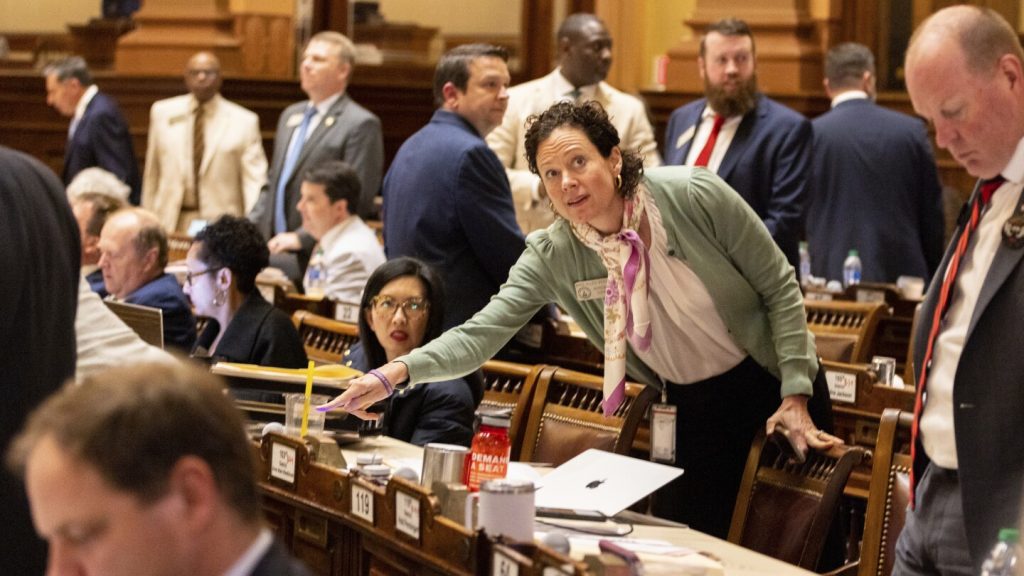Georgia lawmakers approved new rules for challenging voters and qualifying for the state’s presidential ballot, potentially impacting the 2024 presidential race. The bill, known as Senate Bill 189, passed both the House and Senate and is now awaiting Gov. Brian Kemp’s signature. The legislation comes in the wake of false claims of election fraud made by former President Donald Trump and other Republicans following the 2020 election.
One key aspect of the bill is the establishment of guidelines for determining “probable cause” in upholding challenges to voter eligibility, which could result in voters being removed from the rolls. This includes cases where voters are deceased, have voted or registered in another jurisdiction, have claimed a homestead exemption elsewhere, or are registered at a non-residential address. Senate Ethics Committee Chairman Max Burns, a Republican, emphasized the simplicity of the probable cause definition.
Democrats have criticized this provision, arguing that it could lead to baseless attacks on voters, overwhelming election administrators, and disenfranchising individuals. They point to previous challenges by Republican activists targeting over 100,000 voters in recent years under the guise of rooting out fraudulent registrations. The opposition views this as a dangerous trend based on “lies and fearmongering” that undermines confidence in the election system.
Republican supporters of the bill defend the voter challenge section, highlighting provisions that make the process more difficult, such as disregarding appearances on the U.S. Postal Service’s national change of address list as sufficient grounds for a challenge. They also point to safeguards like postponing challenges within 45 days of an election. House Governmental Affairs Committee Chairman John LaHood argues that the bill enhances election confidence, ensuring that every legal vote matters.
In addition to voter challenge rules, the bill includes provisions requiring counties to report absentee ballot results promptly after polls close, allowing the use of paper ballots for small elections, and phasing out the use of QR codes for ballot counting by 2026. Lawmakers have also passed other bills related to election audits, ballot security, poll worker eligibility, and voting machine limitation. These changes are seen as part of ongoing efforts to maintain the integrity of Georgia’s electoral process.
The bill’s impact extends beyond Georgia’s borders, potentially affecting the 2024 presidential race by altering access to the state’s ballot for independent candidates and major political parties. With the 2020 election still fresh in memory and ongoing debates about election integrity, the passage of Senate Bill 189 reflects a national trend of states reevaluating their voting rules and procedures. As the bill awaits the governor’s decision, both supporters and opponents are closely watching the potential implications for future elections in Georgia and beyond.


